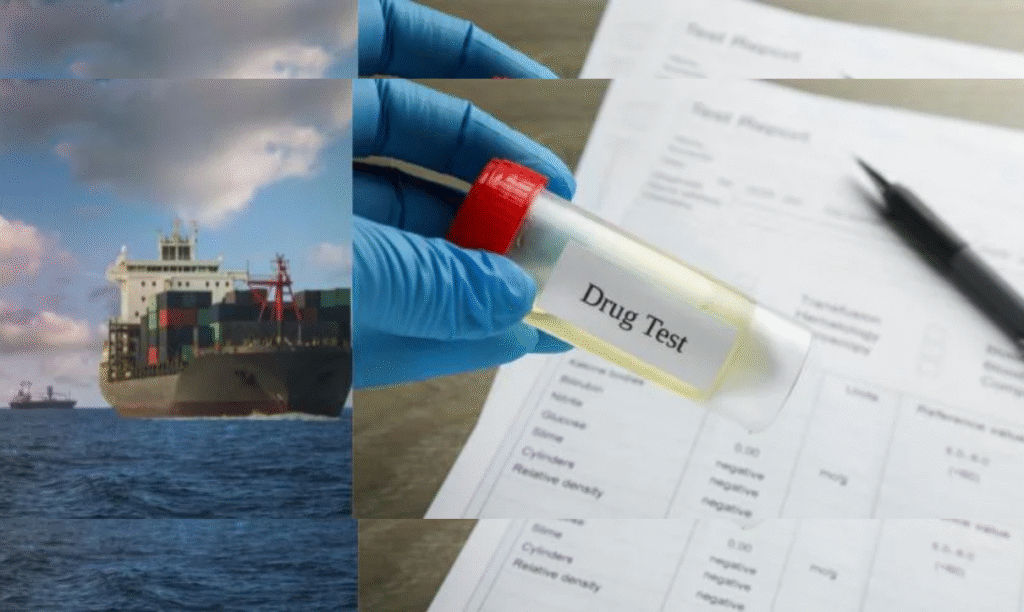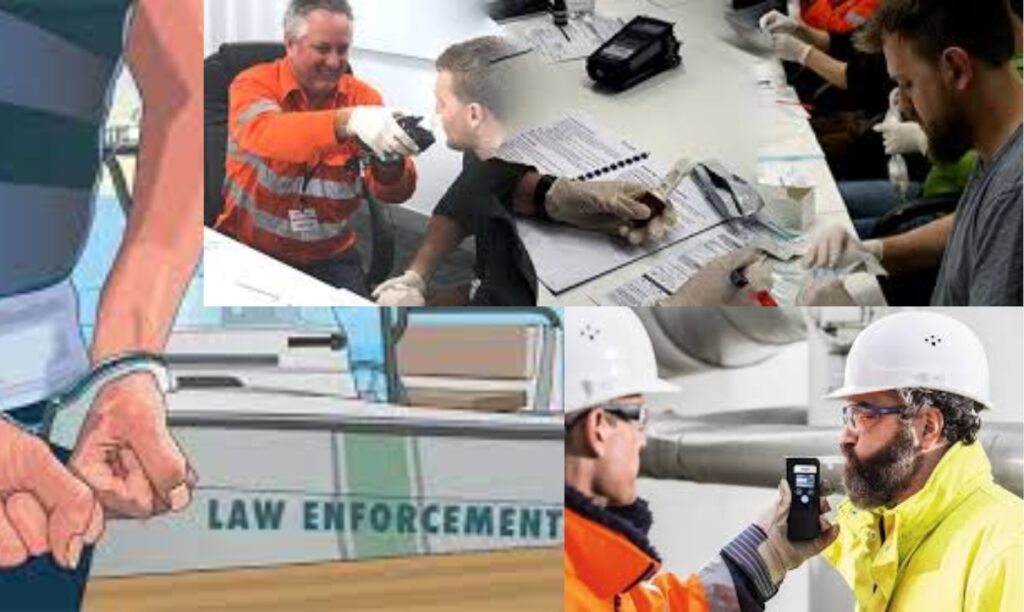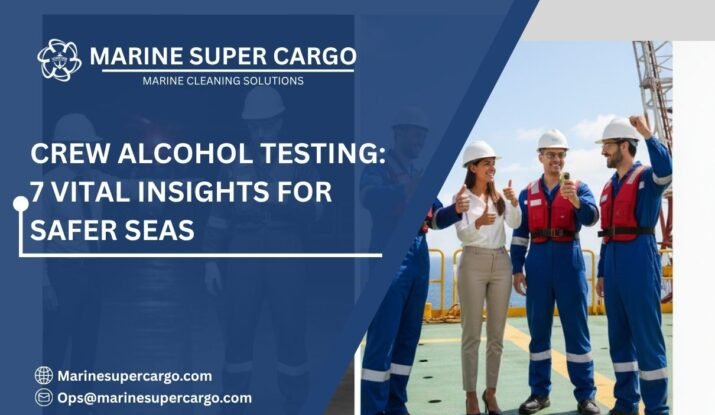How Ship Safety Depends on Crew Alcohol Testing
Navigating the seas has always depended on discipline, vigilance, and teamwork. But in the modern maritime industry, there’s one factor that can single-handedly disrupt safety on board: alcohol consumption. Crew Alcohol Testing has become a cornerstone of ship management, protecting not just the vessel and cargo—but also the crew, port communities, and the marine environment.
In this article, we’ll dive into how Crew Alcohol Testing impacts ship safety, the regulatory frameworks around it, future innovations, and why ignoring it could cost more than anyone expects.
The Unseen Risk at Sea
Imagine a ship sailing through a busy strait with thousands of lives and millions of dollars in cargo depending on its precise navigation. Now imagine the officer of the watch impaired, judgment clouded, reaction time slowed. This isn’t fiction—maritime accident investigations often highlight alcohol as a hidden factor. Crew Alcohol Testing acts as a preventive barrier, ensuring nobody on board compromises the vessel’s safety.
Unchecked alcohol use is like a slow leak in the hull—barely visible at first, but capable of sinking even the strongest ship if ignored. That’s why robust policies and reliable testing are non-negotiable in modern shipping.
Why Crew Alcohol Testing Matters
Crew Alcohol Testing isn’t only about avoiding disasters; it’s about guaranteeing professionalism. When tests are performed systematically:
- Fatigue, human error, and poor judgment are minimized.
- Officers and ratings uphold trust among peers.
- Ship masters and owners have documented compliance proof.
Maritime statistics show that human error contributes to nearly 75% of accidents. Within this, alcohol plays a silent yet significant role. Ensuring a sober crew is a safeguard against costly collisions, pollution, and legal liabilities.

International Maritime Rules You Must Know
Alcohol regulations aren’t just company preferences—they’re anchored in key international frameworks.
- IMO (International Maritime Organization): Defines alcohol standards within the STCW Convention.
- MARPOL: While focused on pollution, it reinforces safety requirements for sober operations at sea.
- IMCA (International Marine Contractors Association): Provides best-practice guidance for offshore safety.
- IAPH (International Association of Ports and Harbors): Many ports demand documented alcohol testing compliance.
For shipowners and operators, understanding these frameworks ensures smooth port calls, insurance coverage, and reputation protection. Crew Alcohol Testing is the compliance glue binding all these rules together. Read also about Ensuring safer seas with 0 risks through cargo safety testing.
How Alcohol Impacts Safety on Board
Alcohol affects the brain like a thick fog rolling over a coastline—it blurs vision, slows reflexes, and distorts judgment. Onboard, this can translate into:
- Misinterpretation of signals or alarms.
- Poor coordination during mooring or cargo handling.
- Delayed response in emergencies such as fire or flooding.
Unlike fatigue, where rest is the remedy, impairment from alcohol only clears with time. Crew Alcohol Testing ensures impairment never begins in the first place, keeping ships in safe waters—literally and legally.
Implementing Crew Alcohol Testing Onboard
Testing works best when it’s systematic, not sporadic. A strong policy includes:
- Pre-employment testing – ensuring sober recruits.
- Random testing during duties – maintaining vigilance.
- Post-incident testing – providing accountability.
- Disembarkation checks at ports – meeting local regulations.
Portable breath analyzers, saliva kits, or blood samples are the frontline tools. Training crew to conduct and cooperate with tests fosters an environment where accountability is cultural, not punitive.
Crew Alcohol Testing and Environmental Safety
At first, alcohol consumption and environmental safety seem unrelated. But look closer: a drunken error in ballast management, bunkering, or cargo transfer can cause spills, fires, or even oil pollution disasters.
MARPOL reinforces that sober crews prevent accidents with cascading ecological impacts. By enforcing crew alcohol testing, shipowners reduce not only operational costs but also the risk of fines, reputational losses, and long-lasting ocean damage. Learn more about Employee Alcohol Testing.
Costs Saved Through Prevention
It’s said prevention is cheaper than a cure, and nowhere is that truer than at sea. Consider:
- Insurance premiums rise sharply after alcohol-related incidents.
- Port delays due to failed compliance cause demurrage.
- Replacing damaged cargo is financially draining.
- Legal and reputational costs linger for years.
Investing in Crew Alcohol Testing is not an expense—it’s a shield against a financial storm. Ship operators who adopt rigorous testing save millions by protecting both lives and balance sheets.
✅ 4 Things to Check for Safety at Sea pic.twitter.com/dAxhJQ2i6U
— Marine Super Cargo (@Marinsupercargo) September 14, 2025
Marine Supercargo Expands Services: Drug & Alcohol Testing for Safer Seas
Marine Supercargo, globally known for its marine cleaning and compliance solutions, is expanding its service portfolio by offering comprehensive drug & alcohol testing for crews worldwide. This initiative reflects a growing industry demand for reliable testing solutions that enhance shipboard safety and align with international regulations from IMO, IMCA, and MARPOL.
For ship owners, operators, and managers, this development means one thing: greater peace of mind. With a trusted global partner managing both hull maintenance and Crew Alcohol Testing, vessels remain compliant, efficient, and safe. By integrating this service, Marine Supercargo helps reduce incident risks, safeguard environmental integrity, and support a zero-tolerance culture for alcohol misuse at sea.
Future Trends in Crew Alcohol Testing
Tomorrow’s ships will likely see innovations that automate sobriety checks. From smart breathalyzer kiosks integrated into gangways to wearable tech monitoring impairment signals, maritime safety is moving toward real-time oversight.
Some forward-looking companies are already piloting digital systems where test results sync automatically with compliance dashboards. This creates instant transparency for ship managers and regulators alike. Crew Alcohol Testing will soon be less about enforcement and more about seamless integration into daily routines.

Building a Safety Culture Beyond Testing
Testing alone won’t secure safety unless matched with culture. A strong maritime safety culture involves:
- Clear zero-tolerance policies.
- Counseling or rehabilitation pathways.
- Leadership by example from senior officers.
- Continual awareness campaigns onboard.
Think of Crew Alcohol Testing as the anchor, but culture as the sail—without both, no ship moves safely forward.
Conclusion
Crew Alcohol Testing is more than ticking a compliance box. It protects ships from human error, reduces environmental damage, and safeguards financial stability. Three key reminders:
- Regulations demand it, but safety culture makes it sustainable.
- Preventive testing saves costs far greater than the investment.
- Trusted partners like Marine Supercargo and CleanShip.co support compliance and efficiency globally.
To keep your vessels safe, compliant, and efficient, take proactive steps today. Partner with experts like CleanShip.co and ensure your crews are ready for smooth sailing—without compromise.
FAQs:
Q1. Why is Crew Alcohol Testing important for ships?
Crew Alcohol Testing prevents accidents caused by impaired judgment, ensuring compliance with international maritime laws and protecting both crew and environment.
Q2. How often should Crew Alcohol Testing be carried out?
Testing works best when random, combined with pre-employment, post-incident, and port-check protocols, ensuring consistent vigilance at sea.
Q3. What methods are used in Crew Alcohol Testing at sea?
Breath analyzers, saliva kits, and in rare cases, blood samples are widely used, offering quick, accurate, and portable testing solutions onboard.
Q4. How does Crew Alcohol Testing impact environmental protection?
Sober crews reduce risks of spills, collisions, and operational mistakes, directly helping compliance with MARPOL and minimizing ocean pollution.
Q5. Can Crew Alcohol Testing save shipping companies money?
Yes. By preventing legal disputes, cargo losses, and insurance hikes, it saves significant costs while maintaining reliability and reputation.


